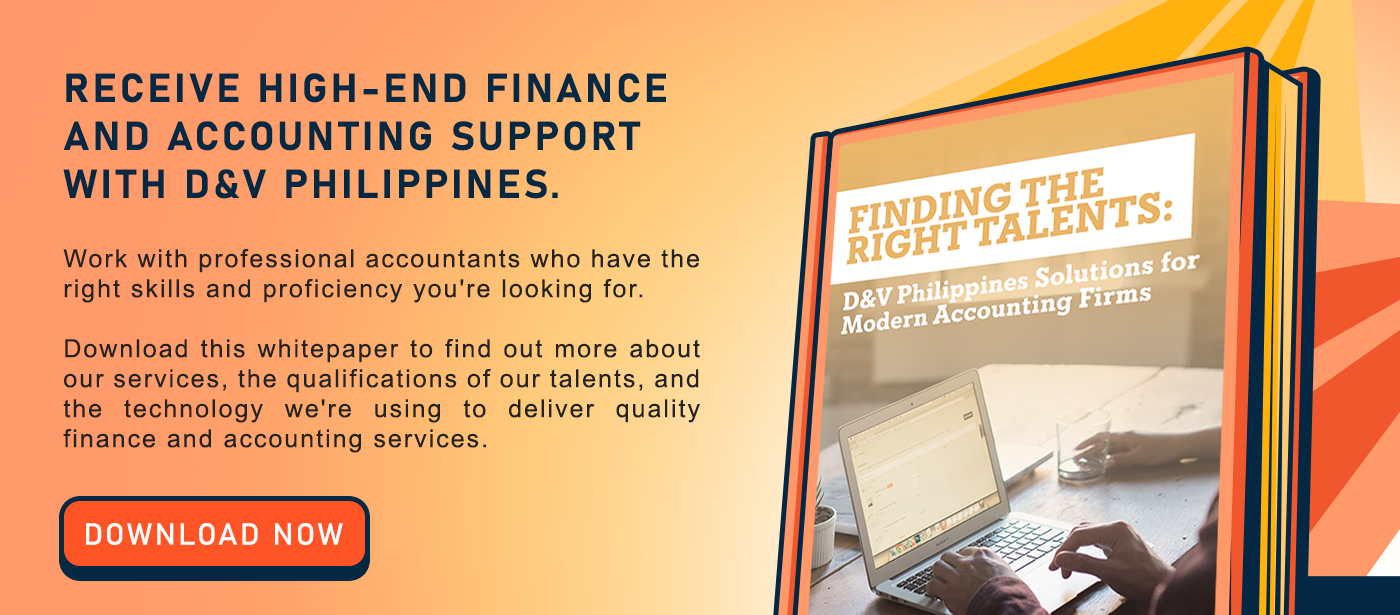7 Things to Consider When Outsourcing Your Accounting
Hiring an outsourcing provider can be a smart move for any professional services firm looking to scale up its accounting operations, expand service offerings, and prevent in-house teams from burning out.
However, before making the leap, it's important to take a moment and assess a few key factors to avoid common pitfalls and get the most value from outsourcing.
Here are seven (7) things to consider when outsourcing your finance and accounting functions.

1. Understand Your Needs
Before starting your search, take the time to define what type of support your organization needs:
- Scope of Work: Do you need help with day-to-day bookkeeping, payroll processing, tax filing, financial reports or all of the above?
- Level of Expertise: Will a junior accountant do, or do you need someone with advanced knowledge in financial planning or compliance?
Having this clarity will help you find the offshore provider capable of meeting your requirements.
2. Look for Relevant Industry Experience
An outsourcing provider with experience in your industry can deliver tangible benefits, such as faster onboarding, fewer compliance errors, and more accurate reporting.
- Relevant Background: Check if your shortlisted outsourcing vendors have experience in your industry. This ensures they’re familiar with your sector’s specific compliance standards and reporting practices.
- Specialized Knowledge: Offshore accountants with experience in your industry can bring critical insights and expertise that are needed to streamline some of the important processes in your organization.
3. Check Data Security and Legal Compliance
When outsourcing sensitive financial data, security should be a top priority.
- Data Security Standards: Ask if they follow frameworks like GDPR, ISO 27001, or any data protection laws applicable to your region.
- Local Compliance: Make sure their operations follow their own country’s legal and labor requirements to avoid any potential risks.
A good service provider will explain how they store, handle, and protect your data.
4. Clarify Communication & Performance
Good communication is essential for remote work as it can make or break the partnership, so it’s important to clarify this from the start.
- Tools & Channels: Ask what tools they use and agree on the main channels for updates.
- Examples: Slack, Zoom, Trello, MS Teams
- Regular Check-ins: Set a consistent schedule (weekly or biweekly) to ensure everyone stays on the same page.
- KPIs & Reporting: Set measurable goals for accuracy, timeliness, and responsiveness so you know if they’re delivering as expected.
5. Consider Time Zone Differences and Availability
Time zone differences can be an issue to service delivery, especially if real-time collaboration is required. This is why you need to set expectations from the start and plan accordingly with your offshore team.
- Working Hours: Clarify their standard work hours and whether they can adjust to your preferred time zone.
- Turnaround Time: Discuss expected delivery times for reports and urgent requests to avoid misalignment.
6. Review Pricing and Cost Transparency
Take the time to understand what your organization is paying for. Make sure to check the breakdown of prices and how it compares with other outsourcing vendors.
- Pricing Model: Ask if they charge by the hour, per project, or a monthly flat fee.
- Inclusions: Clarify if the cost covers software licenses, system access, training, or consultation hours.
Doing this will give you a better overview of their pricing structure and prevent hidden charges later.
7. Secure Legally Binding Documents
Secure everything in writing to protect your organization.
- Service Level Agreement (SLA): Clearly outline deliverables, turnaround times, quality standards, and communication protocols.
- Data Ownership: Specify who owns the data and work output.
- Confidentiality: Include clauses that protect sensitive financial information from unauthorized sharing or use.
Bottom Line
Choosing the right outsourcing provider takes more than just comparing prices. Take the time to consider your organization’s goals, the provider’s capabilities, and how well they align with your internal processes.
Looking for a reliable offshoring provider to help manage your CPA firm’s day-to-day operations? Consider working with D&V Philippines.
D&V Philippines is a business process outsourcing company specializing in finance and accounting services. With over 13 years of experience in the industry, we’ve helped numerous professional services firms streamline their back-office operations, reduce overhead costs, and improve efficiency through tailored offshore support.
Contact us at marketing@dvphilippines.com to learn more about our services. You may also download our whitepaper D&V Philippines’ Solutions for Modern Accounting Firms to know how we can build a great back-office support for your organization.




